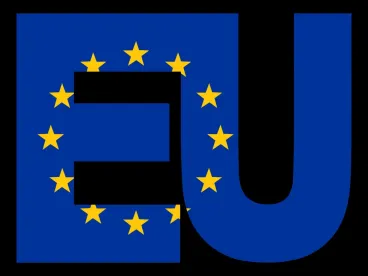Following Theresa May’s appointment as UK Prime Minister on July 13, she has formed a new UK Government. The UK’s key Cabinet Ministers with responsibility for Brexit negotiations all campaigned for the UK to Leave the EU: David Davis, the new Secretary of State for Exiting the EU; Boris Johnson, the Foreign Secretary; and Liam Fox, Secretary of State for International Trade. Both Mr. Davis and Mr. Fox have expressed interest in a free trade-style agreement with the EU. However, both Mrs. May and Philip Hammond, Chancellor of the Exchequer (Finance Minister), supported the campaign to Remain in the EU, and are expected to seek to retain single market access, but with concessions on free movement of labor.
Mrs. May has said she does not expect to trigger the formal two-year withdrawal process, under Article 50 of the Treaty on European Union, until she has found consensus on the UK’s negotiating position between central and devolved governments—Scotland, Wales and Northern Ireland. It is therefore unlikely that Article 50 will be triggered before the end of 2016.
Meanwhile, European Commission President Jean-Claude Junker has appointed Michel Barnier as its chief negotiator with the United Kingdom for discussions under Article 50. Mr. Barnier, the French former Commissioner for the Internal Market and Services (2010-2014), will be responsible primarily for coordinating the Commission’s Directorate Generals in their Brexit negotiations. Mr. Barnier’s appointment was greeted coolly in the UK, where he is unpopular: as Commissioner, he implemented various financial regulations after the 2007-2009 financial crisis, a number of which were opposed by the City of London. However, in the latter part of his term as Commissioner, he sided with the UK on key issues—such as opposing the European Central Bank’s attempt to force all clearing operations in euros to be repatriated within the monetary union, which was ultimately struck down by the Court of Justice of the EU.
Technology and Digital Single Market Policy
Following the announcement of the new EU-U.S. Privacy Shield on July 12—see the Commission’s press release here—the U.S. Department of Commerce will begin accepting self-certifications from U.S.-based companies on August 1, 2016. The U.S. Department of Commerce has released a Guide to Self-Certification. In addition, on August 1, the European Commission launched a “citizens’ guide” to help EU citizens understand their redress options.
On July 26, 2016 the Article 29 Working Party (“Working Party”), a group consisting of representatives from the European data protection authorities, the European Data Protection Supervisor, and the European Commission, met to discuss the Privacy Shield arrangement. They released a press statement following their discussion—see here. Significantly, while the Working Party expressed their concerns, they did not seek to challenge the Privacy Shield at this stage. The Data Protection Authorities emphasized that the annual review process must be robust, and that they will assess whether the safeguards provided under the EU-U.S. Privacy Shield are workable and effective. The statement also highlights their concerns on some of the aspects of the Privacy Shield, such as automated decisions and access by public authorities.
The Public Consultation on the draft BEREC Guidelines on EU Net Neutrality Rules concluded on July 18, 2016—see the press release here. BEREC received almost half a million submissions. BEREC is now evaluating the contributions received, and will submit a finalized draft of the Guidelines to the BEREC Board of Regulators for adoption on August 25, 2016. Following this adoption, the final Guidelines will be released on August 30, 2016, following a press conference in Brussels.
On July 19, 2016, an Advocate General of the Court of Justice of the European Union (CJEU) published his opinion in the joined cases C-203/15 and C-698/15, Tele2 Sverige and Davis and Others—see opinion here. These cases concern the validity of national laws in Sweden and the UK for the retention of telecommunications data under EU law and the EU Charter of Fundamental Rights. In 2014, the CJEU invalidated the European Data Retention Directive on the ground that European Union legislators had exceeded the limits of proportionality in the Directive. In his opinion, Advocate General Henrik Saugmandsgaard Øe found that EU Member States may have the power to oblige telecoms operators to store data on customers’ phone calls, text messages and location information for security purposes. The Advocate General felt that a blanket obligation may be legal under EU law, but national lawmakers would need to ensure measures are proportionate and respect privacy standards.
On July 25, 2016 the European Data Protection Supervisor, Giovanni Buttarelli, issued a very critical opinion on the review of the ePrivacy Directive—see here, and the related press release here. In his opinion, the EDPS stated that the scope of new ePrivacy rules needs to be broad enough to cover all forms of electronic communications, including Voice over IP services, mobile phone messaging apps, and the Internet of Things. He also called for stronger rules on consent requirements and confidentiality obligations to cover all publicly accessible networks, including Wi-Fi services in hotels, coffee shops, shops, airports, etc. The EDPS also proposed a new provision for organizations periodically to disclose aggregate numbers indicating EU and non-EU law enforcement or government requests for information.
Energy and Climate Change Policy
On July 20, the European Commission proposed a Regulation with new binding annual greenhouse gas emission limits for Member States for the period 2021 to 2030 (the so-called “Effort Sharing Regulation”) and a Regulation incorporating land use, land use change and forestry into the EU’s climate change policies (“LULUCF Regulation”)—see the proposals here and here. Both proposals, together with the 2015 proposal on the revision of the EU Emissions Trading System (“ETS”) Directive (see here), set out the EU’s policy framework to abide by its commitment and reduce its emissions by 40% by 2030 compared to 1990 levels. The incorporation of domestic LULUCF policy into the EU climate change mitigation’s accounting is an important development in the EU’s climate change policies and may pave the way for the future incorporation of international forestry and carbon sinks in the EU Emissions Trading System Directive.
The proposed Effort Sharing Regulation would allocate among Member States the effort of reducing emissions for those sectors not covered by the EU ETS, i.e. emissions from buildings, transport, and agriculture. The proposal is the successor of the 2009 Effort Sharing Decision, which established national emission limits for the period between 2013 and 2020. It would impose annual emission limits on the basis of a linear reduction, starting with average emissions from 2016-2018, and including a reduction target per Member State for 2030, compared to 2005.
However, the proposed Effort Sharing Regulation would allow for certain flexibilities for Member States in achieving their annual limits. Member States would be able to transfer excess annual emission allowances over time, and between each other. Moreover, a limited group of Member States, including countries such as Denmark, Belgium and Austria, would be allowed to cancel ETS emissions allowances in order to comply with their emission reduction obligations under the proposed Effort Sharing Regulation.
The proposed LULUCF Regulation requires Member States to account the emissions and removals from their domestic LULUCF and to ensure that their emissions do not exceed removals. It also includes specific provisions for the accounting of harvested wood products, including paper, wood panels and sawn wood.
The interplay of these two proposals is interesting: the proposed Effort Sharing Regulation allows Member States to use their excess of removals under the LULUCF Regulation to comply with their emission obligations under the Effort Sharing Regulation, up to a maximum of 280 million tons of CO2 for the whole of the EU.
The European Parliament and Council will now have to consider both proposals for adoption through an ordinary legislative procedure that is likely to take at least 18 months. Both institutions may be required to agree to amend the proposals in order to take into account the Brexit negotiations that will likely take place in parallel.
Internal Market and Financial Services Policies
On July 5, the European Commission presented a Communication outlining new steps to improve tax transparency in the EU and prevent tax abuse. The Communication is accompanied by two legislative proposals, and lays out a number of further fields on which the Commission intends to act in the coming months.
The Commission’s legislative proposals aim to extend the information available to tax authorities. The substantive changes would be enacted by amending the 2015 Fourth Anti-Money Laundering Directive (4AMLD). In addition to a number of clarifications of the 4AMLD’s scope and definitions, the Commission’s proposed changes include:
|
■ |
subjecting virtual currency exchange platforms to its requirements (by designating them as obliged entities); |
|
■ |
lowering the threshold (from € 250 to € 150) for requiring obliged entities to undertake customer due diligence in respect of non-reloadable pre-paid payment cards, and extending such due diligence to the online use of prepaid cards; |
|
■ |
strengthening the powers of national Financial Intelligence Units to require disclosure by any obliged entity of information whether that entity has reported a suspicious transaction or not; |
|
■ |
requiring Member States to set up a central registry of specified data on holders of bank and payment accounts, or a centralized data retrieval system for the same, accessible to competent authorities on a “need to know” basis; |
|
■ |
requiring Member States to ensure compulsory disclosure of, and public access to, limited information on the beneficial owners of firms and legal entities engaging in profit-making activities, and of any trusts involved in commercial or business-like activities with a view to making profit; and |
|
■ |
establishing an EU minimum list of high-risk third countries that Member States must adopt (obliged entities must undertake enhanced customer due diligence for natural or legal persons established in such countries). |
To grant tax authorities the access to information granted by these proposed amendments to the 4AMLD, the Commission has proposed an amendment to the 2011 Council Directive on administrative cooperation in the field of taxation. These legislative proposals will now be taken forward by the Council and Parliament.
In accordance with its Communication, over the coming months, the Commission will also:
|
■ |
investigate automatic exchanges of national information on beneficial ownership of companies and trusts with a potential tax impact; |
|
■ |
seek to increase oversight of tax advisors’ activities, and disincentivize them from promoting and enabling aggressive tax planning; |
|
■ |
assess the need for further legislation to protect tax whistle-blowers; and |
|
■ |
use the screening phase of the listing process for uncooperative tax jurisdictions—along with other foreign policy tools such as development assistance—to put pressure on those jurisdictions that encourage tax practices it regards as abusive, or fail to respect international standards of good governance. (This last action forms part of the Commission’s external strategy for effective taxation—see the relevant Communication here.) |
On July 7, the European Commission confirmed that Spain and Portugal missed their budgetary targets for 2016 and 2015, respectively—see the press release here, and Q&A here. This was followed, on July 12, by Council Decisions that Portugal and Spain had not taken effective action to correct their deficits in excess of the Treaty reference value of 3 % of gross domestic product (GDP). However, on July 27, the Commission recommended that the countries should not be fined at this stage, and proposed new deadlines for the correction of their deficits. The Council must now determine whether to follow the Commission’s recommendation, or to vote by a qualified majority of Eurozone countries (not including the country in question) to levy fines on the countries of up to 0.2 % of GDP.
On July 14, the European Commission presented a proposal to amend and simplify the legislation on European venture capital funds and social entrepreneurship funds (“EuVECA” and “EuSEF”, respectively)–see here. The proposal is intended to address some of the limitations of the current legislation. The uptake in such funds has been weak, with only 70 EuVECA funds and four EuSEF funds registered in the EU since both regimes entered into force. One of the reasons that the Commission identified for this weak uptake is that Member States applied the existing legislation in divergent ways, often imposing fees on cross-border EuVECA and EuSEF funds. Another is that national authorities also applied different interpretations of the requirement for funds to have “sufficient own funds”. The proposal would prevent these differences and allow for more freedom in the organisation and portfolio of such funds. The proposal has now been sent to the European Parliament and the Council of the European Union, who will have to consider it for adoption through an ordinary legislative procedure that is likely to take at least 18 months.
Life Sciences and Healthcare Policies
On July 21, the European Medicines Agency (EMA) presented a new concept paper on amending current guidance on first-in-human clinical trials—see here. The objective of the proposed changes is to improve strategies to identify and mitigate risks to trial participants. The review is motivated in part to take into account the lessons learned from Phase I first-in-human clinical trial in Rennes, France, in January 2016, that led to the death of one participant, and serious adverse effects on another four. Comments on the concept paper can be provided until September 30. A draft version of the revised guidance is expected to be published for comments before the end of 2016.
Trade Policy and Sanctions
The 14th round of talks on the Transatlantic Trade & Investment Partnership (TTIP) between the U.S. and EU took place July 11-15—see the conclusions on the 14th round, drawn up by the EU’s Chief Negotiator, Ignacio Garcia Bercero, here. Particular areas where the two sides’ negotiating positions remain far apart are services, tariffs, and public procurement and investment protection. In respect of services, the U.S. believes that the EU is demanding too many exceptions, principally under Annex II of the EU’s offer. There also remains particular disagreement over geographical indications and sustainable development. The EU had previously aimed to reach consolidated texts in all chapters by the end of this round, leaving only a few contested points for further discussions. However, neither side managed to present all of its proposals by Friday, nor was there agreement on common legal language to consolidate them; indeed, the final number of chapters has yet to be determined. Following the round, Commissioner Malmström and U.S. Trade Representative Michael Froman met on July 26 for a stocktaking exercise. Negotiation teams will continue to meet throughout the summer to try and arrive at a deal by the end of the year—although this looks increasingly unlikely.
On July 18, the EU received a mandate from the Member States to start free trade negotiations with Indonesia. The deal is intended to cover a broad range of issues, including tariffs, non-tariff barriers, trade in services, investment, public procurement, competition rules, intellectual property and sustainable development. Bilateral trade in goods between the EU and Indonesia amounted to € 25 billion in 2015, with EU exports amounting to € 10 billion and imports to € 15 billion. Trade in services totalled € 6 billion in 2014, with the EU service exports worth € 4.1 billion, and Indonesia’s worth € 1.9 billion. Indonesia is the largest economy in the Association of Southeast Asian Nations (ASEAN), a regional trade bloc that includes countries such as Thailand, Malaysia and the Philippines. Any potential agreement is expected to reflect recent trade agreements reached with Singapore and Vietnam.








 />i
/>i
